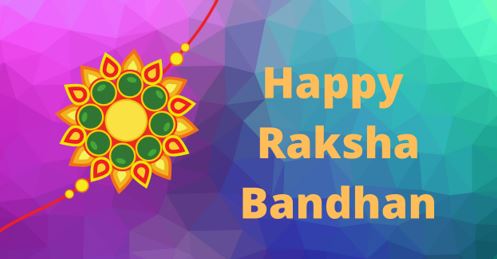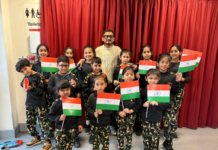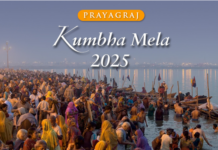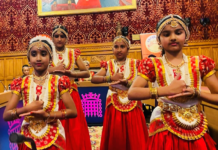This year, Raksha Bandhan will be observed on Sunday, 22 August. According to Hindu calendar, Raksha Bandhan is celebrated in the Shravana month during Purnima (or full moon day).
Legend has it that Raksha Bandhan can be traced back to the day when Lord Krishna had accidentally cut his finger with the Sudarshan Chakra. Draupadi, the wife of Pandavas felt a lot of pain seeing him hurt and she immediately tore a piece of her vastra and tied it to Lord Krishna’s bleeding finger to help soothe his pain and stop the blood from flowing. Lord Krishna was deeply touched by her gesture and in return promised to take care of her from all evils in the world. He called it the Raksha Sutra. And as we know that when Kauravas tried to dishonour her in the court by attempting to disrobe her, Lord Krishna blessed his sister and made sure that the sari she was wearing became endless in length. This is how her brother saved her from the evils – as he had promised.
In Maharashtra and other coastal areas, the day is marked as Narali Poornima. The sea is worshipped on this day, with fishermen throwing coconuts into the sea as offerings.
The festival of Raksha Bandhan marks the special bond between siblings. A sister ties a rakhi around her brother’s wrist while he promises to protect her forever.
However, in a diverse country like India, this is not the only way the festival is celebrated. In many regions, the occasion is marked differently.
In Maharashtra and other coastal areas, the day is marked as Narali Poornima. The sea is worshipped on this day, with fishermen throwing coconuts into the sea as offerings.
In Bihar and Madhya Pradesh, the start of the agricultural season is declared and people celebrate Kajari Purnima.
In Telegu-speaking regions, Rakhi is marked as Rakhi Purnima. Many families have a tradition where daughters tie a rakhi to their father.
In some parts of South India, the occasion of Rakhi Purnima is marked as Avani Avittam. A festival for the male members of the family, it is observed by taking a dip in the water on a full moon night in the Hindu month of Shravan. The men seek atonement for all their sins and replace the sacred thread or janeu they wear, promising to perform only good deeds in the coming year. On this day, scholars begin reading the Yajur Veda, a process that goes on for six months.
In Karnataka, rakhi is celebrated on the occasion of Nag Panchami.
West Bengal celebrates the occasion as Jhulan Purnima, a day devoted to Lord Krishna and Radha. Meanwhile, in parts of Gujarat, Pavitropana is celebrated with the worship of Lord Shiva. (Various inputs)

Readers like you, make ESHADOOT work possible. We need your support to deliver quality and positive news about India and Indian diaspora - and to keep it open for everyone. Your support is essential to continue our efforts. Every contribution, however big or small, is so valuable for our future.











